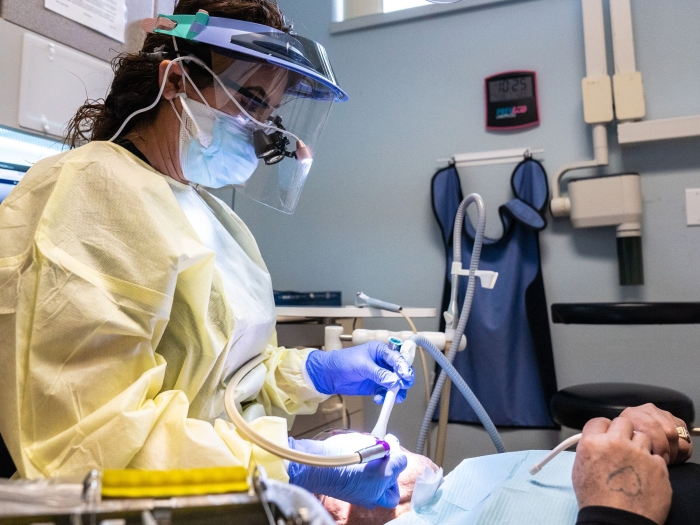Recent studies are uncovering how diabetes may structurally alter the brain, leading to cognitive decline.
3:30 PM
Author |

The Pima Indians, an American Indian tribe in southern Arizona, may hold a key to understanding the relationship between diabetes and Alzheimer's disease, two diseases rapidly increasing in the United States.
Diabetes affects 30 million Americans, with an additional 84 million Americans having prediabetes. The disease is known to cause nerve damage in limbs and damage to kidneys, the eyes and other organs.
Eva L. Feldman, M.D., Ph.D., the director of the NeuroNetwork for Emerging Therapies and ALS Center of Excellence at Michigan Medicine, is working with Robert Nelson, M.D., at the National Institute of Diabetes and Digestive and Kidney Diseases, located in Phoenix, to study these conditions. Dr. Nelson has spent his academic career understanding diabetes and its complications in the Pima Indians.
Recent studies are beginning to uncover how diabetes may structurally alter the brain, and increase the risk of cognitive decline and dementia, including Alzheimer's disease. Over 5.8 million Americans suffer from Alzheimer's disease, which robs people of their mental capabilities. As the U.S. population ages, the number of people with Alzheimer's disease is predicted to reach 14 million by 2050.
SEE ALSO: 4 Takeaways from 'The Lancet' Report on Alzheimer's Disease Burden
"We're looking into the phenomenon of cognitive decline in the Pima population," says Feldman, who is also the Russell N. DeJong Professor of Neurology at U-M.
"In their most recent visits, members of the tribe are volunteering to undergo magnetic resonance imaging of their brain. We are also assessing functional cognition. Once all these data are collected on the brain, we will determine whether any correlations exist between brain abnormalities and diabetes and obesity. We suspect that we will find associations between worsening cognitive decline and abnormal brain structural changes and diabetes and greater obesity."
LISTEN UP: Add the Michigan Medicine News Break to your Alexa-enabled device, or subscribe to our daily updates on iTunes, Google Play and Stitcher.
The Pima Indians participated in one of the longest running diabetes studies, dating back 50 years. The Lancet reported in 1971 that diabetes is almost a way of life for the Pima, where type 2 diabetes and obesity are highly prevalent and occur at a younger age than in the general population. Although the main study ended in 2007, today, Pima Indians continue to participate in several studies of diabetes and its complications.
Thanks to their continued participation, the scientific community has gained insights into the relationship between metabolic dysfunction and brain structure and function, Feldman says.
MORE FROM THE LAB: Subscribe to our weekly newsletter
"For instance, we found that neuropathy was more prevalent in diabetic patients who were also obese," says Feldman. "Moreover, Pima patients with cardiac autonomic neuropathy are also more likely to have kidney disease. Most recently, we found a correlation between the presence of specific types of fats in the blood and the risk of kidney disease. These studies help us identify at-risk patients."
Feldman and Nelson also counsel study participants on dietary habits that could help them prevent some of these complications.
SEE ALSO: Does Exercise Affect the Brain's Aging Process? U-M Research Aims to Find Out
"These studies are truly underscoring the importance of a healthy, balanced diet," says Feldman. "It's not enough to control glucose levels as previously thought. Patients need a more thorough approach and they need to do it early on, or they could be facing issues further on in life."
Currently, Feldman and Nelson are investigating how diabetes and obesity can affect brain health. "We have discovered that obesity correlates with a decreased size in selected brain areas, as measured by magnetic resonance imaging (MRI)." They are presenting these new findings at the American Diabetes Association in Chicago this June. "These new discoveries continue to emphasize how important diet and exercise are to nervous system health," states Feldman.

Explore a variety of healthcare news & stories by visiting the Health Lab home page for more articles.

Department of Communication at Michigan Medicine
Want top health & research news weekly? Sign up for Health Lab’s newsletters today!





